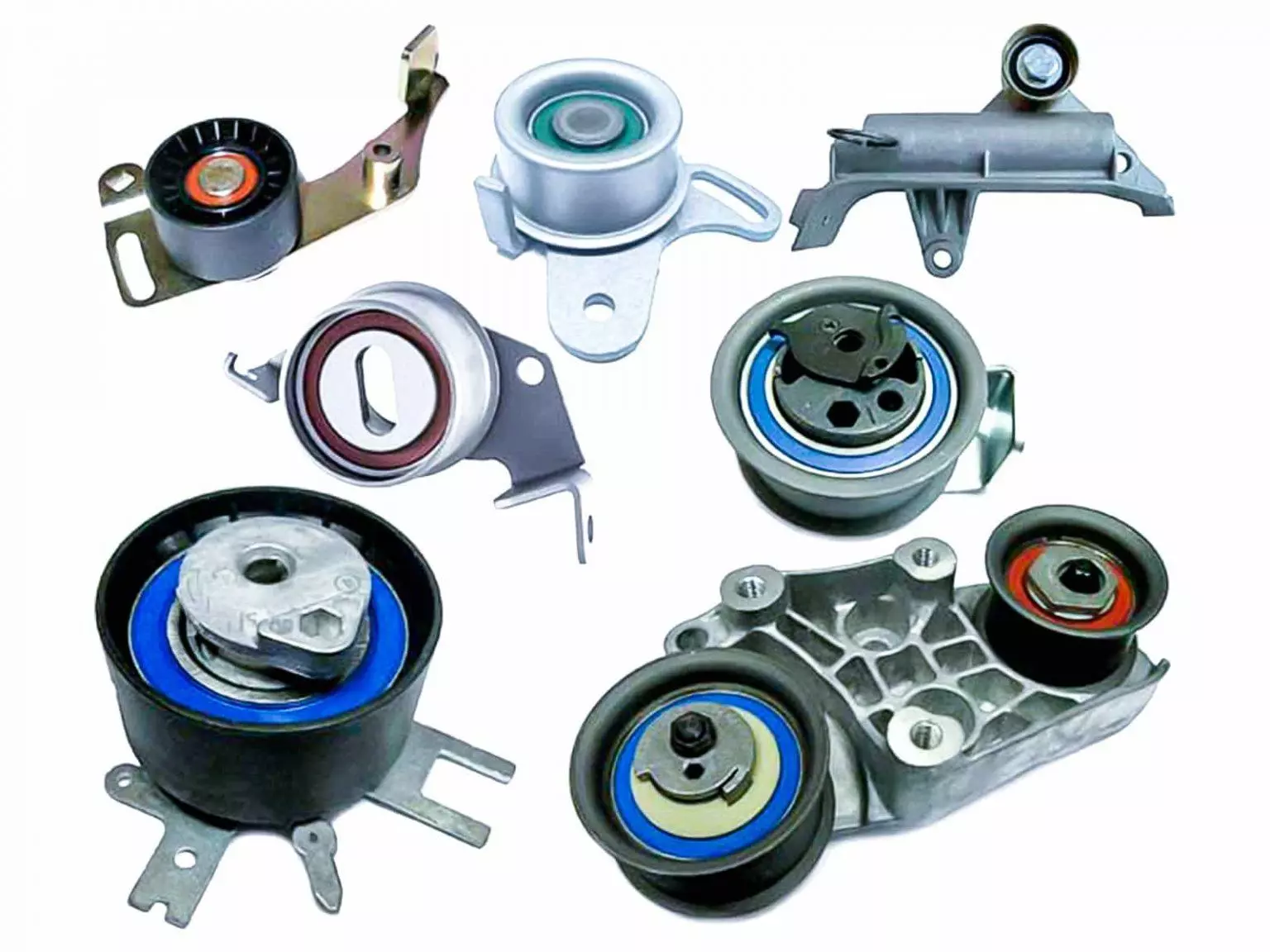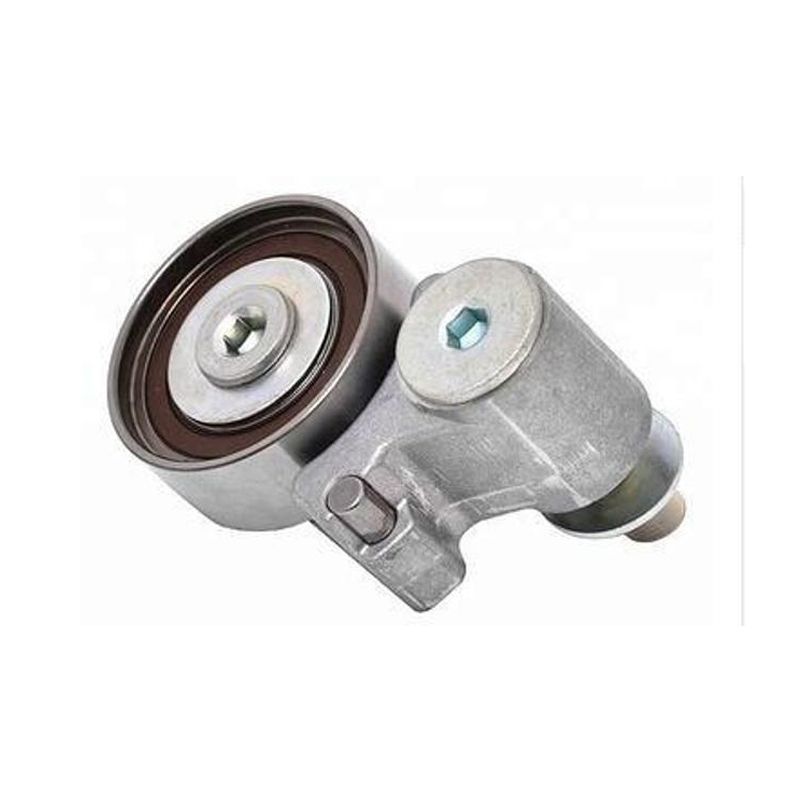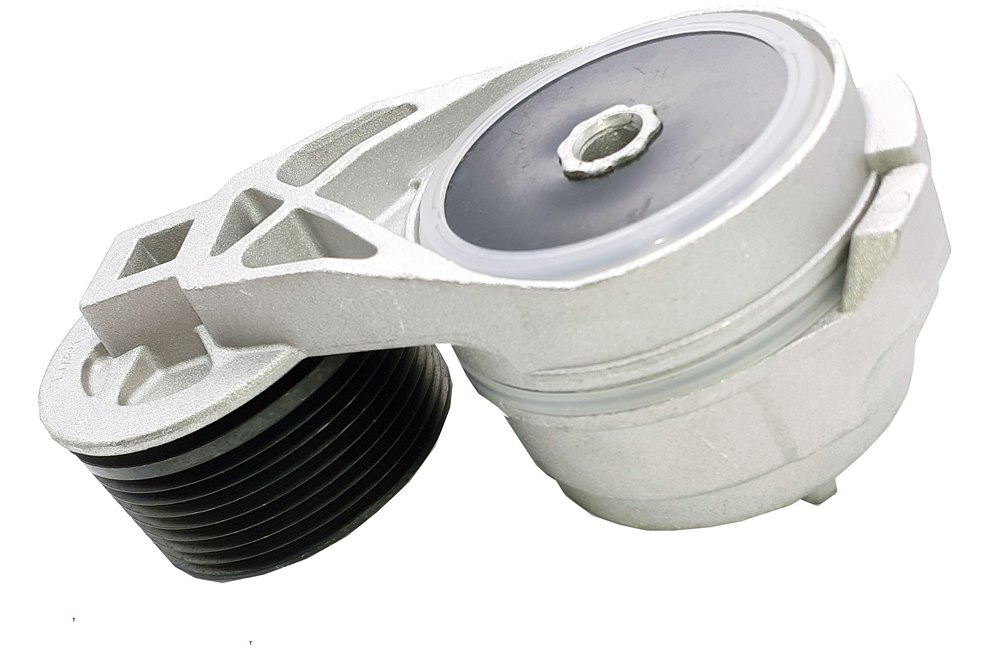Product Description
| Description | Timing Belt Tensioner Kit VKMA 01253 for VW |
| Material | Chrome bearing steel Gcr15, Rubber |
| Belt | with trapezoidal tooth profile |
| Belt Width | 26.5mm |
| Color | Black |
| Teeth Number 1 | 122 |
| Roller Number | 1 |
| Length | 1162mm |
| Tooth pitch | 9.525mm |
| Application | VW |
| Position | Engine spare parts |
| Brand | SI, PPB, or customized |
| Packing | Neutral, SI, PPB brand packing or customized |
| OEM/ODM service | Yes |
| Manufacture place | ZHangZhoug, China |
| MOQ | 50 PCS |
| OEM replacement | Yes |
| Inspection | 100% |
| Warranty | 1 year or 40,000-50,000 KMS |
| Certificate | ISO9001:2015 TS16949 |
| Payment | T/T, PayPal, West Union |
OEM
| AUDI : 07415719R AUDI : 074198119C VW : 07415719R VW : 074109243C VW : 074109243H VW : 074198119C VW : 074198119E VW : 074198119K |
Reference
| AE : TB296 AE : TB514 AE : TB628 AE : TB785 BOSCH : 1987948074 BOSCH : 1987949452 BREDA LORETT : KCD0054 CONTINENTAL CTAM : CT632 CONTINENTAL CTAM : CT939 CONTINENTAL CTAM : CT939K4 CONTINENTAL CTAM : CT939K5 DAYCO : 94104 DAYCO : 94774 SKF : VKMA01253 SKF : VKMT57141 SNR : KD457.53 VEYANCE : G1176H VEYANCE : G1177H VEYANCE : K4G1177H RUVILLE : 5544670+5544770 RUVILLE : 5544672 SKF : VKMA 01270 RUVILLE : 5544570 RUVILLE : 555411 SASIC : 1756042 ROULUNDS RUBBER : RR1169K3 |
DAYCO : 94890 DAYCO : ATB2327 DAYCO : KTB490 FEBI BILSTEIN : 30780 FLENNOR : F924212V GATES : 5323XS GATES : K57123XS GATES : T43054 HK : RS1071 HUTCHINSON : 122AH26 HUTCHINSON : KH270 INA : 530017210 INA : 531571830 LEMFORDER : 617060128 LUCAS : LDK0666 MGA : X177H4 OPTIBELT : HR97122X26.5MM OPTIBELT : KT1306 OPTIBELT : ZRK1301 PROCODIS FRANCE : KTD3067 QUINTON HAZELL : QBK606 QUINTON HAZELL : QBK809 QUINTON HAZELL : QTB352 QUINTON HAZELL : QTB498 ROULUNDS RUBBER : 122TM254 ROULUNDS RUBBER : RR1169 |
Car Application
| VW TRANSPORTER IV Bus (70B, 70C, 7DB, 7DK, 70J, 70K, 7DC, 7DJ) 2.5 1996-2003 AET,APL,AVT 2461 85 Bus VW TRANSPORTER IV Bus (70B, 70C, 7DB, 7DK, 70J, 70K, 7DC, 7DJ) 2.5 1990-2003 AAF,ACU,AEN,AEU 2461 81 Bus VW TRANSPORTER IV Bus (70B, 70C, 7DB, 7DK, 70J, 70K, 7DC, 7DJ) 2.5 Syncro 1996-2003 AET,APL,AVT 2461 85 Bus VW TRANSPORTER IV Bus (70B, 70C, 7DB, 7DK, 70J, 70K, 7DC, 7DJ) 2.5 Syncro 1992-2003 AAF,ACU,AEU 2461 81 Bus VW TRANSPORTER IV Platform/Chassis (70E, 70L, 70M, 7DE, 7DL, 7D 2.5 1996-2003 AET,APL,AVT 2461 85 Platform/Chassis VW TRANSPORTER IV Platform/Chassis (70E, 70L, 70M, 7DE, 7DL, 7D 2.5 1990-2003 AAF,ACU,AEN,AEU 2461 81 Platform/Chassis VW TRANSPORTER IV Platform/Chassis (70E, 70L, 70M, 7DE, 7DL, 7D 2.5 Syncro 1992-2001 AAF,ACU,AEU 2461 81 Platform/Chassis VW TRANSPORTER IV Platform/Chassis (70E, 70L, 70M, 7DE, 7DL, 7D 2.5 Syncro 1996-2003 AET,APL,AVT 2461 85 Platform/Chassis VW TRANSPORTER IV Van (70A, 70H, 7DA, 7DH) 2.5 1990-2003 AAF,ACU,AEN,AEU 2461 81 Van VW TRANSPORTER IV Van (70A, 70H, 7DA, 7DH) 2.5 1996-2003 AET,APL,AVT 2461 85 Van VW TRANSPORTER IV Van (70A, 70H, 7DA, 7DH) 2.5 Syncro 1996-2003 AET,APL,AVT 2461 85 Van VW TRANSPORTER IV Van (70A, 70H, 7DA, 7DH) 2.5 Syncro 1996-2001 ACU,AEU 2461 81 Van |
Company Profile
ZheJiang Mighty Machinery Co. Ltd is a professional manufacturer of auto bearings for more than 20 years. We provide a one-stop service for our customers. We have products of more than 3000 models. Our auto spare parts cover Korean cars like Hyundai, KIA, etc. Japanese cars like Toyota, Honda, Nissan, Mitsubishi, etc. American Cars like Ford, Chevrolet, Cadillac, GM, JEEP, Chrysler, etc. We specialize in supplying auto parts for our clients, including wheel hub bearings, wheel hub units, clutch release bearings, tensioner pulleys, turbochargers, starter motors, clutch sets, water pumps, oil pumps, transmission chains, and so on. Our products comply with international quality standards.
Relying on the professional and rich manufacturing experience and many substantial factories which deeply cooperated for many years, Mighty suppliers customers high-quality products at very competitive prices.
Customer satisfaction is our First Priority, We adhere to the concept of ” Quality First, Customer First”. We will continue to provide high-quality products and the best services to our customers and build up CZPT long-time friendship partners.
Exhibition
Our Advantage
More than 20 years of manufacturing and exporting experience
OEM manufacturing available
Full range, large stock
Quickly feedback
One year warranty
One-stop service
On-time delivery
Packing&Shipping
| Packaging Details | 1 piece in a single box 2 boxes in a carton 30 cartons in a pallet |
| Nearest Port | ZheJiang or HangZhou |
| Lead Time | For stock parts: 1-5 days. If no stock parts: <20 pcs: 15-30 days ≥20 pcs: to be negotiated. |
Our Service
– We have more than 20 years of experience in auto bearings fields.
– Excellent quality control is 1 of our main principles
– We offer OEM service, accept customer labels, and develop the product with your drawings or samples
– Any questions will get a response within 24 hours.
FAQ
1. What’s the minimum order quantity?
We don’t have the minimum order quantity. We can also provide free samples, but you need to pay the freight.
2. Do you provide ODM&OEM order service?
Yes, we provide ODM&OEM services to customers around the world, and we can customize different brands and different sizes of packaging boxes according to customers’ requirements.
3. After-sales service and warranty time
We guarantee that our products will be free from defects in materials and workmanship within 12 months from the date of delivery. The warranty is void due to improper use, incorrect installation, and physical damage.
4. How to place an order?
Send us an email of the models, brand, quantity, consignee information, model of transportation, and payment
Confirm payment and arrange the production.
5. What are your packing conditions?
We use standardized export packaging and environmental protection packaging materials. If you have a legally registered patent, we will package the goods in your brand box after receiving your authorization
6. What are your payment terms?
T/T is 30% of the payment in advance and 70% balance before delivery. Before you pay the balance, we will show you photos or videos of the products and packaging.
7. How long is your delivery time?
The delivery time of the sample order is 3-5 days, and that of a batch order is 5-45 days. The exact delivery time depends on the item and the quantity you ordered.
8. Do you test all products before delivery?
Yes, according to ISO standards, we have professional Q/C personnel, precision testing instruments, and an internal inspection system. We control the quality of every process from material receiving to packaging to ensure that you receive high-quality products
/* March 10, 2571 17:59:20 */!function(){function s(e,r){var a,o={};try{e&&e.split(“,”).forEach(function(e,t){e&&(a=e.match(/(.*?):(.*)$/))&&1
| Certification: | ISO9001, TS16949 |
|---|---|
| Color: | Black |
| Belts: | with Trapezoidal Tooth Profile |
| Belt Width: | 26.5mm |
| Roller: | 1 |
| Position: | Engine Spare Parts |
| Samples: |
US$ 20/Piece
1 Piece(Min.Order) | |
|---|
| Customization: |
Available
| Customized Request |
|---|

Can you describe the various mounting options and installations for drive belt tensioners in different vehicle models?
Drive belt tensioners can be mounted in different ways depending on the specific design and layout of the vehicle’s engine and belt system. The mounting options and installations for drive belt tensioners can vary across different vehicle models. Here’s a detailed description of the various mounting options and installations for drive belt tensioners:
- Idler Pulley Mounting:
- Spring-Loaded Arm Mounting:
- Hydraulic or Pneumatic Actuated Mounting:
- Combination Designs:
- Specific Engine Configurations:
In some vehicle models, the drive belt tensioner is mounted as an idler pulley. The tensioner is integrated into the belt routing system and is responsible for maintaining the proper tension of the drive belt. It is typically mounted on a bracket or housing using bolts or other fasteners. The idler pulley tensioner can be a standalone component or combined with other pulleys, such as the alternator pulley or water pump pulley, to form a pulley assembly.
Another common mounting option for drive belt tensioners is a spring-loaded arm design. In this configuration, the tensioner consists of a pivoting arm with a pulley at one end and a spring mechanism at the other end. The tensioner arm is mounted on a bracket or housing using a pivot bolt or pin. The spring applies tension to the belt by pulling the arm in the opposite direction, maintaining the desired tension level. The arm may have an adjustment mechanism to fine-tune the tension or compensate for belt wear over time.
In some advanced vehicle models, drive belt tensioners may utilize hydraulic or pneumatic actuation for tension control. These tensioners incorporate a hydraulic or pneumatic cylinder that applies force to the tensioner arm or pulley, adjusting the tension as needed. The tensioner is typically mounted on a bracket or housing using bolts or other fasteners. Hydraulic or pneumatic lines connect the tensioner to a control system that regulates the tension based on inputs such as engine load, temperature, or operating conditions.
Some vehicle models may employ combination designs that incorporate multiple tensioner mounting options. For example, a vehicle may have a spring-loaded arm tensioner for the main drive belt and an idler pulley tensioner for an auxiliary belt system. These combination designs allow for efficient belt routing and tension control in complex engine layouts with multiple belt-driven components.
Mounting options and installations for drive belt tensioners can also vary based on specific engine configurations. For example, in transverse-mounted engines commonly found in front-wheel-drive vehicles, the tensioner may be mounted on the side of the engine block or the front of the cylinder head. In longitudinally-mounted engines, the tensioner may be mounted on the side of the engine block, the front of the timing cover, or other locations depending on the design and layout of the engine.
It’s important to note that the specific mounting options and installations for drive belt tensioners can vary significantly between different vehicle models, engine configurations, and even model years. Therefore, it is essential to refer to the vehicle manufacturer’s specifications, technical documentation, or service manuals for precise information on the mounting options and installation procedures applicable to a particular vehicle model.

Can you provide examples of symptoms indicating a malfunctioning drive belt tensioner in a vehicle?
A malfunctioning drive belt tensioner in a vehicle can exhibit various symptoms that indicate a potential issue. Recognizing these symptoms is important as it allows for timely inspection and repair to prevent further damage to the drive belt system. Here are some examples of symptoms that may indicate a malfunctioning drive belt tensioner:
- Squealing or Screeching Noises:
- Visible Belt Misalignment:
- Belt Slippage or Glazing:
- Belt Wear or Damage:
- Malfunctioning Engine Systems:
A common symptom of a faulty tensioner is the presence of squealing or screeching noises coming from the engine compartment. These noises can occur when the tensioner fails to maintain proper belt tension, causing the drive belt to slip or lose grip on the pulleys. The squealing or screeching sound is a result of the belt rubbing against the pulleys or other engine components. If the tensioner is not functioning correctly, it may not apply sufficient pressure on the belt, leading to this noise.
If the drive belt tensioner is not properly aligned or functioning correctly, the drive belt may appear misaligned or off-center. This misalignment can be visually noticeable when inspecting the belt in the engine compartment. A misaligned belt can cause uneven wear, increased friction, and reduced power transmission efficiency. It is important to address this issue promptly to prevent further damage and potential belt failure.
A malfunctioning tensioner can lead to belt slippage or glazing. Belt slippage occurs when the tensioner fails to maintain proper tension, causing the belt to slip on the pulleys. This can result in reduced power delivery to the driven components, leading to decreased performance or functionality. Glazing, on the other hand, refers to a shiny appearance on the belt’s surface due to excessive heat and friction. Both belt slippage and glazing are indications of an inadequate tensioner function and should be addressed promptly.
A malfunctioning tensioner can contribute to accelerated wear or damage to the drive belt. Excessive belt wear can occur due to inadequate tension, misalignment, or abnormal belt movement caused by a faulty tensioner. Signs of belt wear include cracks, fraying, or missing chunks of the belt material. If the tensioner is not functioning correctly, it can put additional stress on the belt, leading to premature wear and potential belt failure. Regular inspection of the drive belt for signs of wear and damage is crucial to identify any potential issues with the tensioner.
A malfunctioning drive belt tensioner can also impact the performance of various engine systems. If the tensioner fails to maintain proper belt tension, it can result in inadequate power delivery to components such as the alternator, power steering pump, air conditioning compressor, or water pump. This can lead to issues such as dimming lights, difficulty in steering, reduced cooling efficiency, or a malfunctioning air conditioning system. If multiple engine systems are experiencing problems simultaneously, it could be an indication of a faulty drive belt tensioner.
It is important to note that these symptoms can also be caused by other issues related to the drive belt system. Therefore, a comprehensive inspection by a qualified mechanic is recommended to accurately diagnose the cause of the symptoms and determine if the drive belt tensioner requires repair or replacement.

Are there specific designs of drive belt tensioners for different vehicle makes and models?
Yes, there are specific designs of drive belt tensioners that are tailored for different vehicle makes and models. The design of a drive belt tensioner can vary depending on the specific requirements and specifications of the vehicle’s engine system. Here’s a detailed explanation of how drive belt tensioner designs can differ for different vehicle makes and models:
- Mounting Bracket and Pulley Configuration:
- Tensioner Arm or Pulley Geometry:
- Tensioner Spring Characteristics:
- Material Selection and Construction:
The mounting bracket and pulley configuration of a drive belt tensioner can vary based on the layout and space constraints of the engine compartment in different vehicle makes and models. The tensioner’s mounting bracket is designed to fit the specific mounting points in the engine, ensuring proper alignment and installation. The pulley configuration, including the number and arrangement of pulleys, may also differ to accommodate the routing and arrangement of the drive belt in the particular vehicle.
The geometry of the tensioner arm or pulley can be optimized for a specific vehicle make and model. The shape, length, and angle of the tensioner arm or pulley may differ to ensure proper belt contact and tensioning in the specific engine system. These design adjustments are made to ensure optimal belt performance, minimize wear, and reduce the risk of belt slippage or noise under different operating conditions.
The characteristics of the tensioner spring can be customized for different vehicle applications. The spring’s stiffness, preload, and rate can be optimized to provide the appropriate tension for the specific drive belt system. These adjustments take into account factors such as the length and width of the belt, the power requirements of the driven components, and the operating conditions of the vehicle. The tensioner spring design ensures that the belt maintains the proper tension throughout the lifespan of the vehicle.
The material selection and construction of drive belt tensioners can vary based on the specific vehicle make and model. Different manufacturers may choose materials such as cast iron, steel, or aluminum for the tensioner body and components, depending on factors like durability, weight, and cost considerations. The construction techniques and quality control measures may also differ to meet the specific standards and requirements of the vehicle manufacturer.
In summary, drive belt tensioners are designed with specific considerations for different vehicle makes and models. The mounting bracket and pulley configuration, tensioner arm or pulley geometry, tensioner spring characteristics, and material selection can vary to ensure optimal performance, proper belt tension, and compatibility with the engine systems of specific vehicles. These design variations ensure that the drive belt tensioners are tailored to the specific requirements and specifications of different automotive applications.


editor by CX 2024-02-23